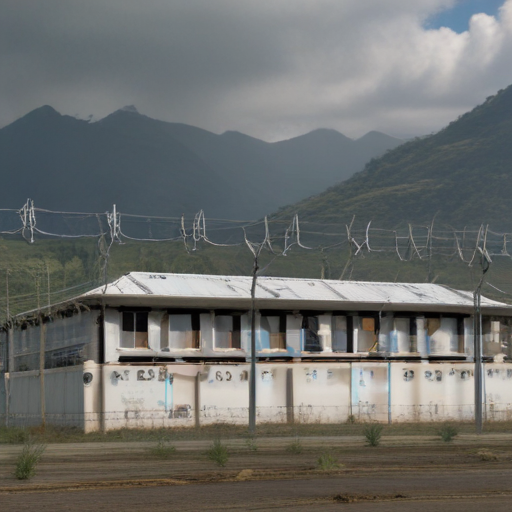U.S. Secretary of State Marco Rubio concluded his visit to El Salvador on Tuesday, securing a pioneering agreement with President Nayib Bukele that allows the country to accept deportees from the U.S. of all nationalities, including American citizens incarcerated for violent crimes.
In what Rubio termed an unprecedented move, Bukele expressed his willingness to house these deportees in El Salvador’s correctional facilities. Following a lengthy meeting at Bukele’s lakeside residence, Rubio stated, “We can send them, and he will put them in his jails,” emphasizing that the arrangement extends to dangerous criminals currently serving time in the U.S.
President Bukele himself took to social media to confirm the deal, referencing the country’s unique offer to “outsource part of its prison system” to the United States. He noted that this would involve accepting only convicted criminals and suggested that the fee charged for housing these inmates would be significantly beneficial for El Salvador’s prison system.
However, amidst the agreement, a U.S. official quickly clarified that there were no current plans for the administration to deport American citizens, as such a move would face considerable legal hurdles. It is important to remember that the conditions within El Salvador’s prisons have been described by the State Department as “harsh and dangerous,” with severe overcrowding and inadequate facilities.
El Salvador has been under a state of emergency since March 2022 to combat the widespread issue of gang violence, leading to thousands of arrests with questions surrounding due process. The government recently opened a massive prison capable of housing 40,000 gang members, where prisoners endure strict conditions, including limitations on meals and visits.
This new agreement aligns with the broader goal of the U.S. to engage regional partners to bolster immigration enforcement and manage deportations effectively. Rubio’s visit comes amid a five-nation tour aimed at addressing migration issues and connecting with Central American nations over shared responsibilities and strategies.
Despite the controversial nature of this agreement, it may present an opportunity for collaboration between the U.S. and El Salvador, potentially fostering a more secure environment in both nations. Yet, human rights advocates have raised concerns about the implications of such arrangements, cautioning that they might not only target violent criminals but could extend to a broader range of asylum seekers.
Overall, while the agreement between Rubio and Bukele holds potential for addressing immigration challenges, it also underscores the complex dynamics of international migration policy and the ongoing debate about human rights treatment in relation to deportation and criminal justice.
This article captures the evolving landscape of U.S.-El Salvador relations, reflecting both political maneuvering and the challenges of ensuring human rights standards in cooperation agreements. As these discussions continue, they will likely influence migration patterns and regional security in significant ways.
